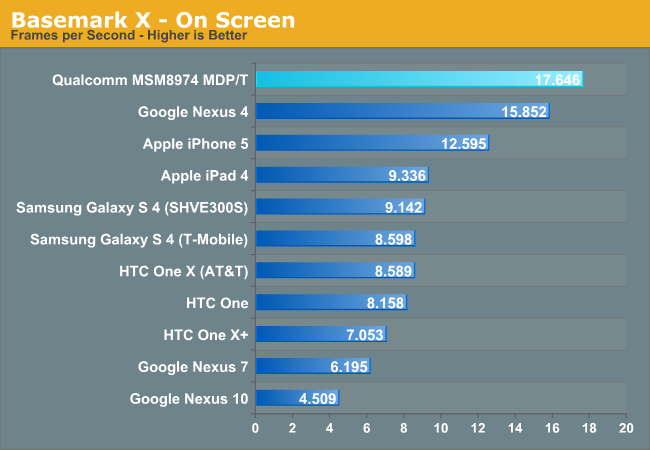That's really shocking. Looks like that "We'll ship a bigger GPU" didn't work as advertised and Tegra/Shield backfired:
http://blogs.nvidia.com/blog/2013/0...ves-nvidia-room-to-expand-its-business-model/
http://blogs.nvidia.com/blog/2013/0...ves-nvidia-room-to-expand-its-business-model/
Nvidia said:The IT world is being upended.
PC sales are declining with the rise of smartphones and tablets. High-definition screens are proliferating, showing up on most every machine. Android is increasingly pervasive. Yesterdays PC industry, which produced several hundred million units a year, will soon become a computing-devices industry that produces many billions of units a year. And visual computing is at the epicenter of it all.
The consequences of these changes are apparent everywhere. New industry leaders are emerging. Companies differentiate not only on products but on business models. Some create systems from industry-standard chips. Others are vertically integrated and build their own chips, systems, software and even services. Some do both.
For chip-makers like NVIDIA that invent fundamental advances, this disruption provides an opening to expand our business model. Not so long ago, we only made and sold GPU chips, albeit the worlds fastest ones. Five years ago, we introduced Tegra, a system on a chip. More recently, GRID a complete system that streams cloud games and other graphics-rich content as well as the SHIELD gaming portable have been unveiled.
But its not practical to build silicon or systems to address every part of the expanding market. Adopting a new business approach will allow us to address the universe of devices.
So, our next step is to license our GPU cores and visual computing patent portfolio to device manufacturers to serve the needs of a large piece of the market.
The reality is that weve done this in the past. We licensed an earlier GPU core to Sony for the Playstation 3. And we receive more than $250 million a year from Intel as a license fee for our visual computing patents.
Now, the explosion of Android devices presents an unprecedented opportunity to accelerate this effort.
NVIDIAs Kepler architecture is the worlds most advanced, most efficient GPU.
Well start by licensing the GPU core based on the NVIDIA Kepler architecture, the worlds most advanced, most efficient GPU. Its DX11, OpenGL 4.3, and GPGPU capabilities, along with vastly superior performance and efficiency, create a new class of licensable GPU cores. Through our efforts designing Tegra into mobile devices, weve gained valuable experience designing for the smallest power envelopes. As a result, Kepler can operate in a half-watt power envelope, making it scalable from smartphones to supercomputers.
Kepler is the basis for currently shipping GeForce, Quadro and Tesla GPUs, as well as our next-generation Tegra mobile processor codenamed Logan. Licensees will receive all necessary designs, collateral and support to integrate NVIDIAs powerful graphics cores into their devices.
Well also offer licensing rights to our visual computing portfolio. This will enable licensees to develop their own GPU functionality while enjoying design freedom under the best visual computing patent portfolio in the world.
This opportunity simply didnt exist several years ago because there was really just one computing device the PC. But the swirling universe of new computing devices provides new opportunities to license our GPU core or visual computing portfolio.
As the world leader in visual computing technology, we believe were uniquely positioned to benefit. We invest more in R&D in this area than any other company in the world over $1 billion annually and more than $6 billion since our founding. The vast majority of our 8,500 employees are engaged in these efforts, and we have more than 5,500 patents issued and pending the industrys best visual computing patent portfolio.
But more importantly, more devices will have the potential to take advantage of our investments. That means more of the planets users will be able to enjoy our advanced graphics technologies. And thats what really gets us excited here at NVIDIA.




